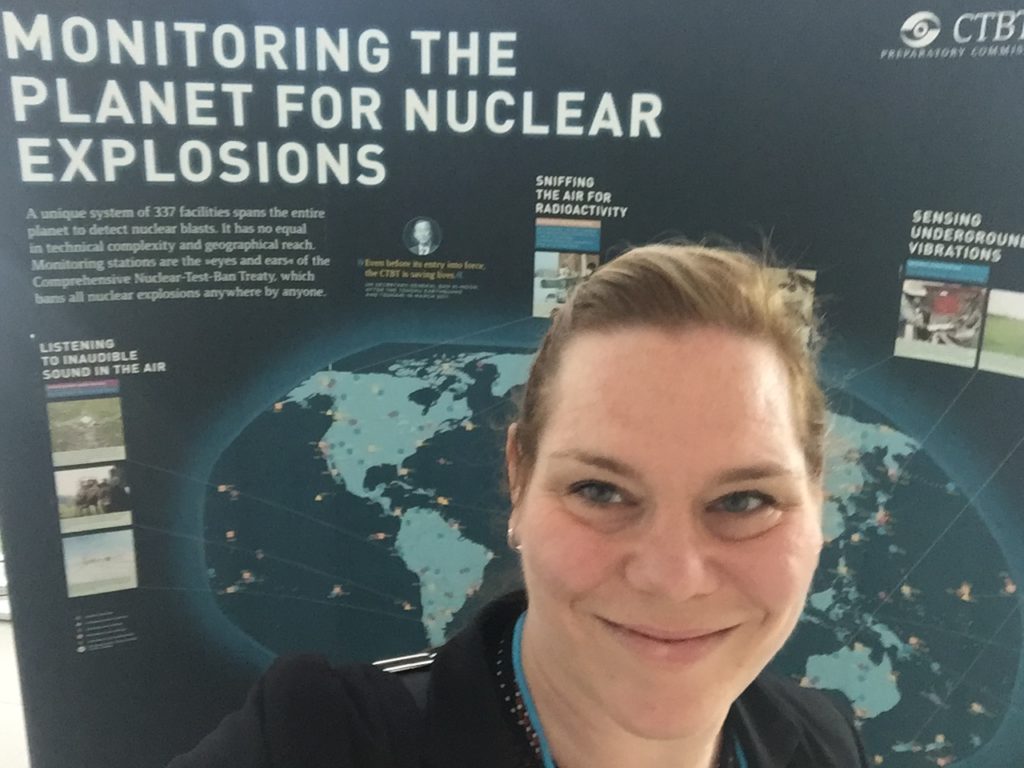Thankfully, nuclear test explosions have (mostly) stopped. Only the DPRK (North Korea) has done any in decades- and they are isolated and vilified by the international community for testing. No one (else) wants nuclear testing ever again- no more mushroom clouds. Yet, the Comprehensive Test Ban Treaty hasn’t entered into force. This post looks at some ideas on how to move forward on the testing issue.
CTBT Entry into Force
Given the current political realties, the entry into force of the CTBT is not going to happen very soon, despite calls from the international community for “early” entry into force. Of course calls should be made to encourage ratification by China, the Democratic People’s Republic of Korea (North Korea), Egypt, India, Iran, Israel, Pakistan, and the US to allow the treaty’s entry into force (EIF). The 2010 NPT Review Conference Action Plan (Action 12, 13, 14) made additional references to the CTBT, like reporting on activities to support EIF and supporting the CTBTO, and this is something all states can, and should continue to do.
At the same time, it is also good to take an honest look at what to do should the treaty never actually enter into force. One thing to consider is if an agreement by States at the Article XIV Conference, for example, could set up an independent task force to conduct on site inspections if, and where needed. There are other provisions of the treaty that are in limbo pending EIF but most of the independent monitoring system is in place and fully functional. The CTBTO is an amazing organisation advancing the benefits of the International Monitoring System capabilities beyond the creators initial imaginations, and what’s really missing is the capacity for inspections. So, why not develop a work around while waiting for the political winds to align for the last few ratifications, and set up a task force. The technical expertise is useful and helpful to the overall disarmament and non-proliferation regime, and surely some of the wealthier CTBT champions can allocate the funding to make it happen.
Nuclear testing moratorium
To paraphrase the comedian Chris Rock: you shouldn’t get credit for stuff you’re supposed to do. While it’s great that the nuclear-weapon States haven’t done any full scale tests since the 1990s, it’s a pretty low standard to hold them to. It was known from early days how deadly nuclear testing is, and yet the tests continued until the 1990s. There have even been some calls for a return to testing, especially since the new warhead modifications (like the B61-12) may be unpredictable. In all seriousness, no one wants to see another mushroom cloud or accidental vent of a full scale test. Maintaining the moratorium should be a given, and everyone should be able to agree that this is something worth supporting.
Other types of testing
There is no denying that there are other types of non-explosive testing used by some of the nuclear armed countries. These “subcritical nuclear experiments” are counter to the spirit, if not the letter of the CTBT and certainly run contrary to efforts to fully implement the NPT.
Legacy of nuclear testing
In general, testing proved that nuclear weapons are deadly, that they cause intergenerational harm, that nuclear weapons need to be abolished. The legacy of testing is something that is felt in affected communities around the world. From Nevada to Semi-Palatinsk, there was a surge of hope when the CTBT was opened for signature in 1996. That was the last time there was a multilateral treaty on nuclear weapons until the new negotiations on the ban. The CTBT however, didn’t really get into the issues of victims and ensuring they have full access to enjoy their full human rights. This is something the new treaty will hopefully include.
Across the world, those affected by nuclear testing have a right to be heard, and should expect never to see another mushroom cloud. It is long past time to make this right a reality, and as we’re in Vienna for this NPT Prepcom, it’s a good time to support the CTBT Organisation and make sure the moratorium is backed by the law.

